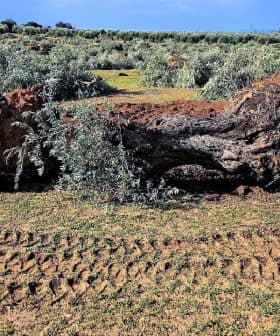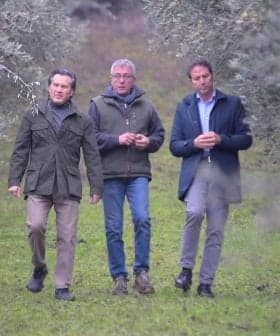Editors from 200 Health Journals Warn Climate Change Is Creating Global Health Crises
Increasing global temperatures are putting more people at risk from a multitude of maladies, ranging from tropical and zoonotic diseases to air pollution.
Editors of over 200 health journals have warned that rising global temperatures are already harming human health, and a further increase of 1.5 ºC could cause irreversible catastrophic harm. They are calling on governments to take immediate action to combat climate change and reverse biodiversity loss, emphasizing the urgent need for global coordination and significant changes to society and economies to prevent the worst consequences of the crisis.
Rising global temperatures are already harming human health, and a further increase of 1.5 ºC could result in “catastrophic harm to health that will be impossible to reverse,” the editors of more than 200 health journals have warned.
The editors have come together to call on governments to act now to combat climate change and reverse biodiversity loss.
Never let anyone tell you that we can’t afford to phase out greenhouse gas emissions. We have everything to gain.
“This is an unprecedented intervention at an unprecedented time,” Laurie Laybourn-Langton, a senior advisor at the United Kingdom Health Alliance on Climate Change and co-author of the appeal, told Olive Oil Times. “Never before have so many journals from so many different countries and health disciplines joined to make such a call.”
See Also:Health NewsThe health crisis caused by the rising world temperatures “could dwarf the disruption brought by Covid-19″, he added.
The “call for emergency action to limit global temperature increases, restore biodiversity and protect health” builds on decades of efforts by the scientific community to warn about what was happening to biodiversity and health.
“We need global willingness to substantially change our economies so that planetary wellbeing is valued as highly as, if not more than, economic growth,” Kirsten Patrick, interim editor-in-chief at the Canadian Medical Association Journal and among the first to sign the appeal, told Olive Oil Times.
“Countries need to pledge themselves to targets and plans that are supported by legislation that leads to real consequences for countries that do not meet obligations,” she added.
The call has been published ahead of the upcoming United Nations General Assembly and the subsequent climate meetings scheduled in Glasgow, Scotland, and Kunming, China. While most countries acknowledge the need for action, the largest emitters of greenhouse gases are often found on opposite sides of the debate.
“Even China and the United States are beginning to experience the catastrophic consequences of climate change, in extreme weather events such as flooding and fires,” Patrick said. “Citizens should call on their elected representatives to take action to protect them from worse future hazardous events, which will be certain to occur if climate change mitigation is not made a priority now.”
The call underlined how some of the worst consequences of climate change are already hitting many countries responsible for the smallest fractions of global emissions.
“Yet no country, no matter how wealthy, can shield itself from these impacts,” the call reads. “Allowing the consequences to fall disproportionately on the most vulnerable will breed more conflict, food insecurity, forced displacement and zoonotic disease – with severe implications for all countries and communities.”
According to the signatories, equity must drive the global response to climate change. They added that countries should be accountable for their “cumulative, historical contribution” to emissions, current emissions and their ability to respond to the crisis.
“Appeals to wealthy nations to take responsibility for their historical greenhouse gas emissions and support poorer nations may not have been very successful to date – the idea of reparation is never very politically popular – but perhaps wealthy nations can at least act for the sake of their own citizens,” Patrick said.
The message from the scientific community has often been left out of the political debate, added Laybourn-Langton.
“For example, many or most country plans for reducing CO2 emissions do not adequately explore the health dimension, the threats as well as the benefits to health of acting quickly,” he said.
See Also:Climate CoverageAccording to the petitioners, the announced plans to cut emissions brought forward by many countries “are not enough.”
“Concern is growing that temperature rises above 1.5 ºC are beginning to be seen as inevitable, or even acceptable, to influential members of the global community,” they wrote.
The call asks governments worldwide to “make fundamental changes to how our societies and economies are organized and how we live. The current strategy of encouraging markets to swap dirty for cleaner technologies is not enough.”
The health editors also ask institutions to support redesigning transport systems, cities, production and distribution of food, markets for financial investments and health systems.
“Global coordination is needed to ensure that the rush for cleaner technologies does not come at the cost of more environmental destruction and human exploitation,” the call reads.
The appeal lists some of the significant consequences of the loss of biodiversity coupled to rising temperatures, such as growing heat-related death among people over 65 years of age, dermatological malignancies, tropical infections, adverse mental health outcomes, pregnancy complications, allergies and cardiovascular and pulmonary morbidity and mortality.
Laybourn-Langton, who helped coordinate the simultaneous publishing of the call, emphasized how one in every five deaths worldwide is caused by air pollution, mainly due to the burning of fossil fuels. This figure also represents a substantial economic cost for productive activities.
“When putting a dollar figure on the benefits to society of this happening, it is estimated to be far greater than the cost of phasing out the fossil fuels, for instance rolling out clean cars, power plants and so on,” Laybourn-Langton said. “So never let anyone tell you that we can’t afford to phase out greenhouse gas emissions. We have everything to gain.”
Should the following international meetings on climate fail, Patrick warned they will open the doors to the worst consequences of the crisis.
“On the global scale, we will see mass migration of people seeking to escape climate change-related events, and all the myriad health harms that go with being a refugee, social determinants that in turn impact health over the life course,” she said. “We will see escalating food insecurity, harms to women and children and more frequent novel infectious disease like Covid-19.”
“We, as editors of health journals, call for governments and other leaders to act, marking 2021 as the year that the world finally changes course,” the call concludes.
Share this article









